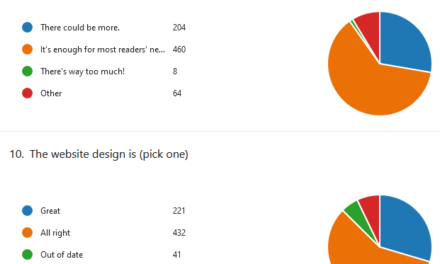
Assistant Editor Toni Judnitch: Now that we’re nearly through this century-long year and we’re all sporting Rip Van Winkle beards into 2021, this emotionally exhausted Assistant Editor thought it might be nice (and cathartic) to pause, take a deep breath, and reflect on some of the best writing advice I’ve been thankful to have received. Let’s begin:
Your first idea is probably a bad idea. This is the best piece of pocket-sized writing advice I’ve ever gotten, and I still pass it on to my students/writing friends/random passersby. I love this because it works differently for writers at different levels. For beginning writers, it pushes them to get away from knee-jerk clichés (so many teardrops rolling/steaming/shining down cheeks). For more advanced writers, it takes the pressure off the expectation you should come up with something profound on the first try. Even now, as I work on my first novel, I push myself to challenge my initial thoughts and ideas. I ask myself: Is this too Hollywood? Have I read this before? Can I come up with something better? I’ve often found a stronger image simply by sitting for a moment and trying out different ideas instead of blazing ahead to hit that daily thousand (okay fine, two hundred) words.
Embarrass yourself. During the first year of my MFA, I was very interested in sad characters sitting and thinking about how sad they were (mainly because I was sad and sitting around thinking about how sad I was). This is embarrassing to reveal, but it was true for me and is still true for many writers. My characters always thought about wanting to do something, but they never acted. I was too embarrassed, I think, to have them grab the knife out of the block and wave it around or steal a boat or whatever else young sad Toni wanted to write about during that time.
I suppose another way to say this is make yourself vulnerable. Cut close to the bone. Step over the line into something that makes you cringe, just a bit, or something that scares you to say out loud. In those moments, you often find an electrifying truth.
When setting out to write a story, you should, above all else, strive to write the kind of story you want to read. This one seems so obvious it feels a little silly to recommend, but this was the piece of advice that changed everything during my MFA. I was so determined to write what I thought other people wanted to read, that I wasn’t paying attention to figuring out the kinds of stories I wanted to exist in the world. Once I stopped writing for other people, the process became exciting again. If you’re writing the type of story you seek out as a reader, you’re being true to yourself.
In the spirit of the season, I also asked some other CR staffers what advice they’re thankful for:
Managing Editor Lisa Ampleman: I can remember sitting in a classroom at George Mason University—no windows, fluorescent lighting, the desks pushed to the margins of the rooms so we could form a circle—when Eric Pankey gave us MFA students a piece of advice that I remain thankful for: he said that we needed to try to separate, as much as possible, the business of being a writer and the craft life of the writer, to schedule separate times (and cognitive space) for sending out submissions, etc., and for writing. He urged us not to take rejection as an indictment of the work itself but as a prompt to send out other submissions, to know that that journal just wasn’t the right fit. I still often strive for that compartmentalization, that Zen-like approach, though it’s a process, for sure. I’m thankful that he encouraged us newbies to envision the literary life that way.
More recently, a friend with whom I exchanged poems gave me a specific kind of feedback that has affected everything I’ve written since. She looked carefully at the grammar and pointed out that the poems (packed with information about space/spaceflight) were full of introductory participial phrases and other dependent clauses, in a way that downplayed the action of the sentence. Letting active verbs be the driving force of the syntax has helped me approach revision on the level of the line in such a different way.
Assistant Editor Lisa Low: One of the best pieces of writing advice that I continually relearn is being okay with the frustrations of the drafting process—how bad or dumb everything sounds, the lack of ideas I have, the amount of research I might need, etc. The blank page continues to intimidate me! Reminding myself that drafting is just giving myself more opportunities for better writing to happen.
Another really helpful piece of advice I’ve received is going on a walk when stuck in a writing problem. It makes me think about how different kinds of movement can be connected to each other, and I like the feeling of worrying over a line or ending without the expectations of the page.
So there you have it. As we make our way into the new year, it’s important to look forward as writers, to challenge ourselves, to push our writing to places it has yet to go. That said, we shouldn’t forget probably the most important piece of advice: Be kind to yourself.











